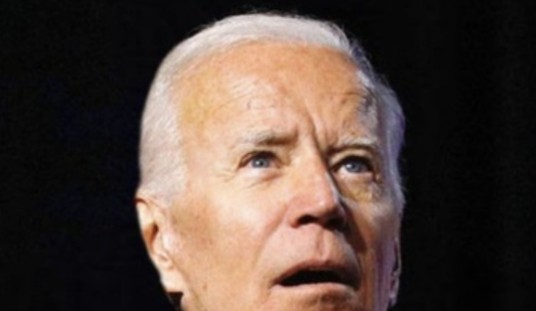As Iran and world powers prepare for new nuclear talks, letters from Tehran’s envoys to top international officials suggest little prospect of major progress, with Tehran combative and unlikely to offer any concessions.
Two letters, both written late last month and obtained by The Associated Press, reflect Iran’s apparent determination to continue the nuclear activities that have led to new rounds of U.N., EU, and U.S. sanctions over fears that Tehran might be seeking to develop nuclear arms.
At the same time, world powers preparing to talk to Tehran are unwilling to cede ground on key demands concerning Iran’s uranium enrichment activities, dimming prospects that the new negotiations will ease tensions.
***
Now comes word that Russia will, after a decade-and-a-half of stop-and-go work, finally fuel and start Iran’s nuclear reactor at Bushehr by August 21st. Similar word has come many times before. The Russians are, in the parlance of the region, adept at selling this particular rug over and over. Somehow the carpet never actually changes hands. Could this time be different?
Only Vladimir Putin and his immediate circle really know. It matters because, once fueled and operational, Bushehr will produce plutonium 239, which can be used to make nuclear weapons. The plant is also large, impossible to conceal or move, and relatively easy to destroy from the air. But once it has gone critical, any attempt to do so would risk the release of a radioactive plume that might kill civilians and poison surrounding areas.
This leaves any would-be attacker of Iran’s nuclear sites with a difficult choice.
***
The two prominent dissidents who have spoken up are the unsuccessful presidential candidate in last year’s elections, Mir Hossein Mousavi, and a former speaker of Iran’s parliament, Mehdi Karroubi. They say in a public letter that the tougher sanctions only hurt “the most vulnerable social classes of Iran” and are a boon to the ruling powers…
The view of the dissidents is that the sanctions will likely never force Tehran to give up its nuclear ambitions – and some foreign policy experts agree. They argue that sanctions on Cuba and North Korea have not forced those governments to bow to outside pressure.
But the economic sanctions are hurting average Iranians, which runs counter to the international community’s interests, the dissidents add. Beyond that, they say the sanctions have provided the regime with a pretext for cracking down further on the political opposition by equating it with Iran’s foreign “enemies.”
***
Let’s pause here to reiterate the obvious fact that a U.S. attack on Iran might well be an epic disaster. Iran could incite its Shiite allies in Iraq to sow violence and chaos even as tens of thousands of American troops remain in the country. Tehran could also step up support for the Afghan Taliban; in a nightmare scenario, Iran might supply the Taliban with surface-to-air Stinger missiles, the weapon that drove out the Soviets. “The regional security consequences,” Cordesman and Toukan concluded in their latest report, “would be catastrophic.” What’s more, while some Arab regimes might quietly celebrate a blow against their Persian rival, it’s not clear how many ordinary Muslims will see things that way. And any attack might shore up Ahmadinejad’s grip on power, in a rally-round-the-flag effect. The potential effects on the oil market and a recovering world economy are hard to predict. Awful as the effects of a military strike by the U.S. may be, however, there’s plenty of reason to think the fallout from an Israeli attack would be just as treacherous for America. The U.S. can always deny a role in or even knowledge of a strike by Israel. But Iran’s leaders are almost sure to assume the nefarious American-Zionist machine at work anyway. Moreover, the Council on Foreign Relations’s Steven Simon wrote in November, “[R]egardless of perceptions of U.S. complicity in the attack, the United States would probably become embroiled militarily in any Iranian retaliation against Israel or other countries in the region.”
Unintended consequences might also drag America into a fight that someone else started. Consider an Iran war game conducted in December by the Brookings Institution which imagined a unilateral Israeli attack on Iran. Things got nasty fast. Iran unleashed a slew of attacks against Israel, including launching ballistic missiles at Israel’s air bases and its Dimona nuclear facility. Hezbollah and Hamas began new rocket campaigns, drawing Israel back into Lebanon. And Iran began a campaign of international terrorism in Europe designed to undermine Western support for Israel. The game’s American team hoped to stay on the sidelines. But because Iran understood this, Tehran overreached, launching attacks on oil facilities in Saudi Arabia, whom Iran’s leaders perceived as having supported the strike. (The game’s Israeli jets had crossed Saudi airspace.) When Iran began to mine the Strait of Hormuz, a key choke point for the global oil trade, it crossed a U.S. “red line.” The game ended with the United States “massively” reinforcing its forces in the region and the prospect of a substantial conventional war between the United States and Iran.
***
I would argue that because Sunni Arabs from Saudi Arabia, the United Arab Emirates, Lebanon, and Egypt perpetrated the attacks of September 11, 2001, and because Sunni hostility to American and Israeli interests remains a conspicuous problem, the United States should theoretically welcome a strengthened Shiite role in the Middle East, were Iran to go through an even partial political transformation. And demographic, cultural, and other indicators all point to a positive ideological and philosophical shift in Iran in the medium to long term. Given this prognosis, and the high cost and poor chances for success of any military effort to eliminate Iran’s nuclear program, I believe that containment of a nuclear Iran is the most sensible policy for the United States.
The success of containment will depend on a host of regional factors. But its sine qua non will be the ability of the United States to underline any policy toward a nuclear-armed Iran with the credible threat of military action. As Kissinger told me, “I want America to sustain whatever measures it takes about Iran.” As he writes in Nuclear Weapons and Foreign Policy, “Deterrence … is achieved when one side’s readiness to run risks in relation to the other is high; it is least effective when the willingness to run risks is low, however powerful the military capability.”…
The dreadful prospect of limited nuclear exchanges is inherent in a world no longer protected by the carapace of mutual assured destruction. Yet much as limited war has brought us to grief, our willingness to wage it may one day save us from revolutionary powers that have cleverly obscured their intentions—Iran not least among them.








Join the conversation as a VIP Member